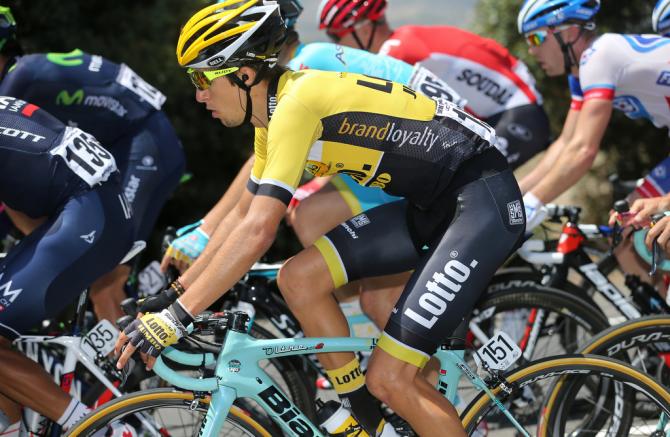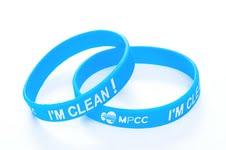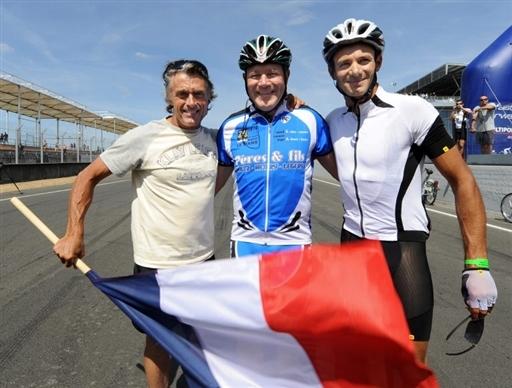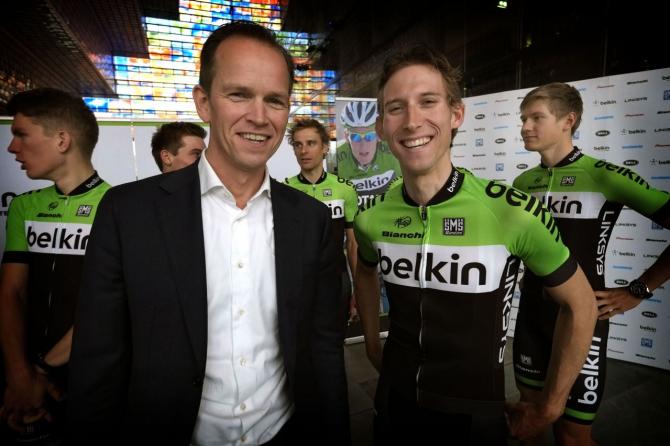MPCC cortisol testing will not change despite LottoNL-Jumbo's withdrawal
Dutch squad are third to leave movement in 2015





The Movement for Credible Cycling has responded to LottoNL-Jumbo's withdrawal from the group by confirming that it will not make any changes to its current cortisol testing programme.
LottoNL-Jumbo announced that it was leaving the MPCC on Wednesday morning after citing reservations about the accuracy of the body's voluntary cortisol tests, which are designed to counteract the use of corticosteroids in competition. Under the MPCC’s rules, which are more stringent than those outlined in the WADA code, riders who require treatment with cortisone may not race for eight days and may only return to competitive action when their cortisol levels return to within pre-established parameters.
LottoNL-Jumbo had been compelled to withdraw George Bennett from its Giro d'Italia line-up after he showed low levels of cortisol in a control carried out prior to the race. In 2013, the Dutch squad – then operating as Belkin – had withheld Theo Bos from the Vuelta a España in similar circumstances. In each case, the team insisted that the low cortisol readings were caused by asthma medication rather than by the use of corticosteroids and manager Richard Plugge called for an adjustment to the MPCC’s cortisol testing.
In a statement on Wednesday afternoon, the MPCC said that it had declined LottoNL-Jumbo's request for changes to the existing protocol following a meeting of its board two days ago. The MPCC board is chaired by former Credit Agricole manager Roger Legeay.
"According to the MPCC Board members meeting in Lyon on 8th of June 2015, there is no reason to grant LottoNL-Jumbo's request, to avoid proceeding to cortisol level tests on the coming races. No change in the internal regulation can be adopted before the next General Assembly planned in October 2015," the statement read.
"More than 1,300 cortisol level tests have been performed on riders of MPCC team members since 2009. Only seven samples revealed unusually low cortisol levels in that period. The Board is surprised to observe that the cortisol level of a rider on inhaled corticosteroids treatment has not been better monitored by LottoNL-Jumbo medical staff in the days prior to 2015 Giro, especially in the light of a first case of unusually low cortisol level faced by the team at the start of 2013 Vuelta."
The MPCC statement also noted that LottoNL-Jumbo, like all member teams, had been given the opportunity at the annual general meeting last October to recommend an external expert to analyse the validity of the current cortisol testing protocol. "Like any other team member, LottoNL-Jumbo recommended the opinion of an international expert of their choice, who never replied to MPCC’s requests," the MPCC statement said.
Get The Leadout Newsletter
The latest race content, interviews, features, reviews and expert buying guides, direct to your inbox!
LottoNL-Jumbo first joined the MPCC at the end of 2012, shortly after Rabobank had pulled out of sponsorship citing a long history of doping cases dating back to the 1990s.
Richard Plugge's squad is the third to leave the MPCC this year after Lampre-Merida and Bardiani-CSF, and the departure reduces the number of WorldTour teams in the movement to just nine. Lampre revoked its membership in order to keep Diego Ulissi on its roster following his return from a nine-month doping ban, while Bardiani-CSF left after refusing to withdraw one of its riders from the Giro when he showed low cortisol levels in pre-race testing.

Barry Ryan was Head of Features at Cyclingnews. He has covered professional cycling since 2010, reporting from the Tour de France, Giro d’Italia and events from Argentina to Japan. His writing has appeared in The Independent, Procycling and Cycling Plus. He is the author of The Ascent: Sean Kelly, Stephen Roche and the Rise of Irish Cycling’s Golden Generation, published by Gill Books.